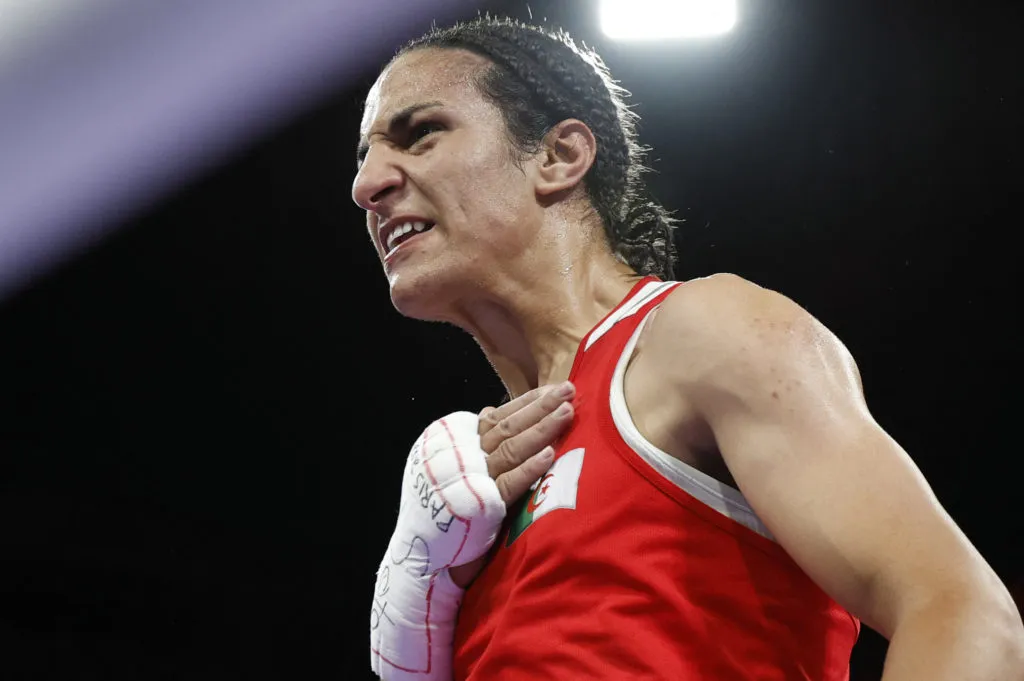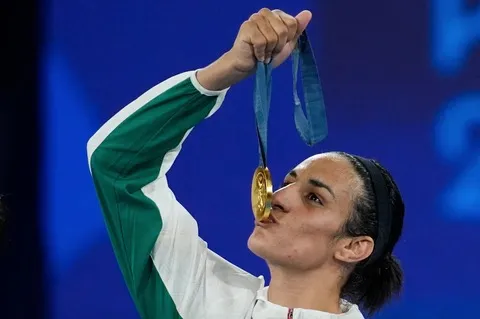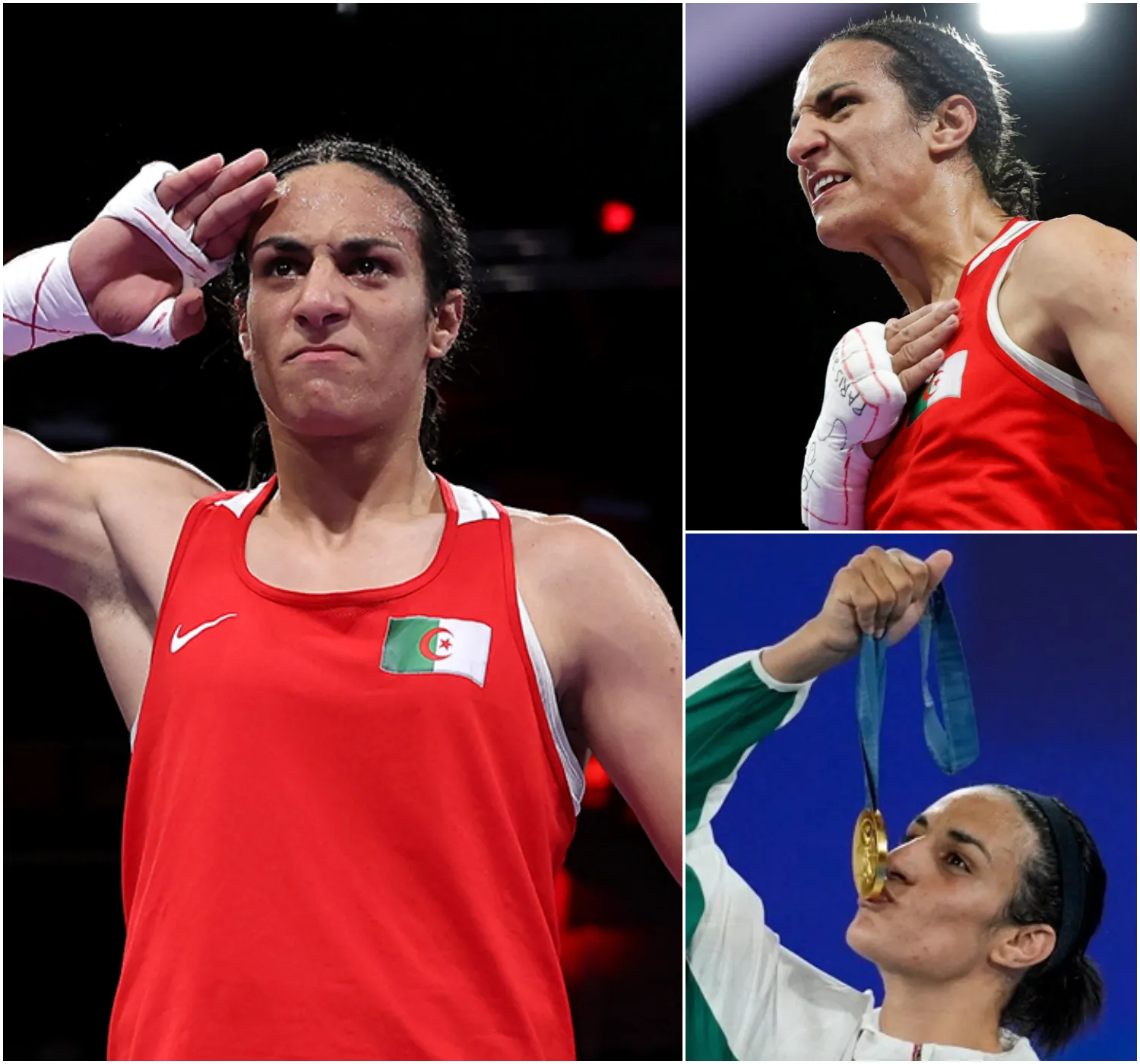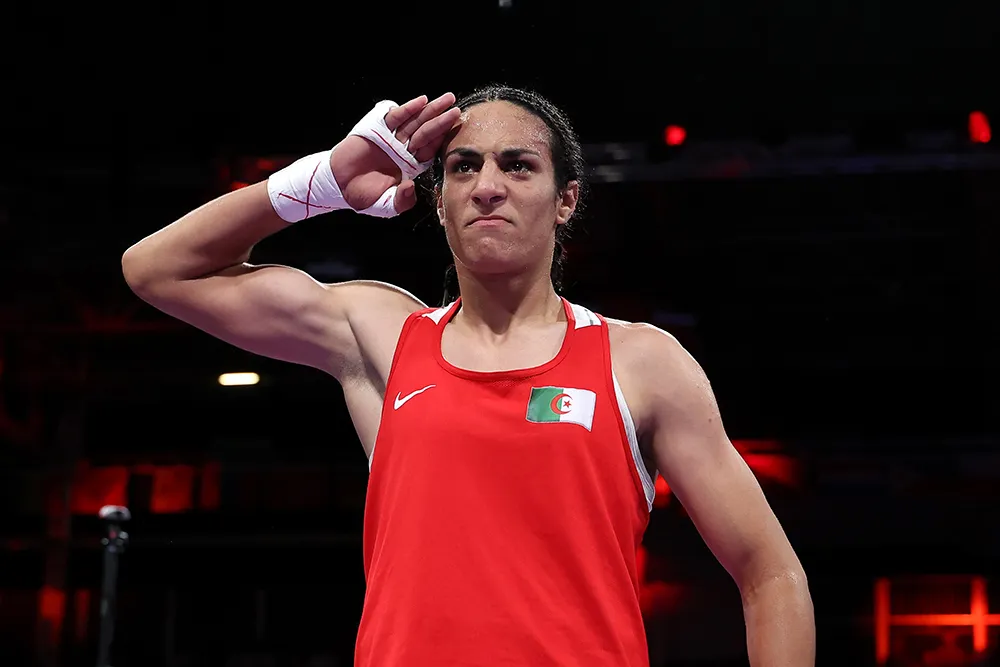Imane Khelif, often referred to as the “Queen of Tears” for her emotional yet powerful presence in the boxing world, has recently shaken social media with a series of posts that express her unwavering determination to fight for justice. Known for her meteoric rise in the sport and her advocacy for women’s rights, Khelif is not only an athlete but a voice for change. Her latest public statements come after facing harsh criticism and what she claims to be unjust treatment, both inside and outside the ring. With millions of fans and supporters, her vow to stand strong has captured the attention of social media, sparking widespread discussions about her fight for justice and the deeper societal issues she represents.

The “Queen of Tears” Persona
Imane Khelif earned the nickname “Queen of Tears” not because of weakness, but due to her ability to show vulnerability while demonstrating unmatched strength and resilience. Her emotional displays, often seen during interviews and after bouts, resonate with fans who see her as a symbol of courage in the face of adversity. Khelif’s open expression of her feelings has made her a relatable figure, especially for those who see her as a role model for women who refuse to be silenced or dismissed.

Her journey to stardom in the boxing world has not been without its challenges. Hailing from Algeria, Khelif has had to navigate cultural, social, and gender-related barriers, all while rising to prominence in a sport that remains male-dominated. Despite the odds, she has consistently demonstrated her prowess in the ring, earning accolades and admiration from her supporters. However, as Khelif’s profile has grown, so too have the critics, some of whom have used her emotional persona to undermine her achievements.

Social Media as a Battleground
In a recent series of social media posts, Khelif addressed the mounting criticism she has faced, particularly from those who question her emotional displays and accuse her of using vulnerability as a “weakness” in the tough world of boxing. The posts, which quickly went viral, see Khelif vowing to fight back against the unfair scrutiny she feels is rooted in gender bias and societal expectations.

“I will never let unjust criticism define who I am or what I stand for,” Khelif wrote in one powerful message. “Tears are not a sign of weakness. They are a sign that I am human, that I care, and that I will keep fighting—for myself, for women, and for justice.”
Khelif’s message was widely shared and supported by fans, many of whom see her as a beacon of strength in a world where women in sports are often held to different standards than their male counterparts. Her posts also ignited discussions about the double standards women face, especially when it comes to showing emotion in professional settings. While male athletes are often praised for their passion and emotional displays, women are frequently subjected to harsh judgment and criticism for similar behavior.
The Fight for Justice
Imane Khelif’s call for justice extends beyond her personal experience as a boxer. She has become an advocate for broader social change, particularly in the realm of gender equality and the fight for women’s rights. In interviews, she has spoken openly about the challenges women face in sports, especially in regions where traditional gender roles remain deeply entrenched. Khelif believes that by sharing her struggles and standing up against unfair treatment, she can inspire others to do the same.
“I know what it feels like to be doubted because of my gender, to be told that I’m not strong enough or that my emotions make me less of a fighter,” Khelif said in a recent interview. “But that only makes me more determined to prove them wrong. I am not just fighting for myself—I’m fighting for every woman who has ever been told she can’t achieve her dreams because of who she is.”
Khelif’s activism is also reflected in her efforts to promote the inclusion of women in sports at all levels. She has worked with various organizations to encourage young girls to take up boxing and other forms of physical activity, believing that sports can be a powerful tool for empowerment. Through her work, Khelif hopes to create a world where women in sports are treated with the same respect and admiration as their male counterparts.
The Backlash and Khelif’s Response
Despite her widespread support, Khelif has faced intense backlash from some critics who argue that her emotional displays are a sign of instability and unsuitability for the boxing world. These detractors often point to traditional notions of toughness in sports, suggesting that Khelif’s tears undermine her credibility as a serious athlete. However, Khelif has been quick to respond, using her platform to challenge these outdated ideas and push for a more inclusive understanding of strength.
“The people who criticize me don’t understand what it takes to step into the ring, to put everything on the line. Emotions are part of being human, and being human doesn’t make me any less of a fighter,” she stated. “In fact, it makes me stronger. I will keep standing up, no matter how many times they try to bring me down.”
Khelif’s bold response has only strengthened her bond with her supporters, who have taken to social media to defend her against the negative commentary. Many have praised her for standing firm in the face of criticism, noting that her willingness to show vulnerability is part of what makes her a role model for so many.
Conclusion: A Symbol of Resilience
Imane Khelif’s vow to fight for justice and stand strong against unjust criticism has resonated far beyond the boxing world. As the “Queen of Tears,” she has become a symbol of resilience, defying societal expectations and challenging the double standards that women in sports continue to face. Her advocacy for gender equality and her determination to stay true to herself, despite the naysayers, make her a powerful figure in the ongoing battle for women’s rights and social justice.
As Khelif continues to rise both as an athlete and an activist, her message remains clear: emotions are not a weakness—they are a sign of strength, and she will continue to fight not only in the ring but in the broader arena of social change. The “Queen of Tears” has no intention of backing down, and her determination to seek justice and equality will undoubtedly leave a lasting impact on the world of sports and beyond.